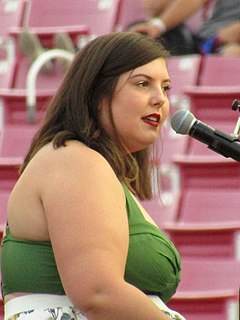A Quote by Huston Smith
If Rumi is the most-read poet in America today, Coleman Barks is in good part responsible. His ear for the truly divine madness in Rumi’s poetry is really remarkable.
Related Quotes
I like poetry, but honestly, I like dramatic literature more. If I had to pick between Rumi and Dostoevsky, I would pick Dostoevsky without even thinking about it. Ninety-nine out of 100 Iranians would probably pick Rumi. Kiarostami, too, would probably pick Rumi first. I try to have the meaning be in the action of the story, not in the symbolism. I want it to be in the action, and it's dramatic action that creates the meaning.
The great Sufi poet and philosopher Rumi once advised his students to write down the three things they most wanted in life. If any item on the list clashes with any other item, Rumi warned, you are destined for unhappiness. Better to live a life of single-pointed focus, he taught. But what about the benefits of living harmoniously among extremes? What if you could somehow create an expansive enough life that you could synchronize seemingly incongruous opposites into a worldview that excludes nothing?
Jalaluddin Rumi is completely rooted in Islamic teachings of Quran. He was a great scholar, he belonged to a madrassa, and he knew Islamic theology and jurisprudence very well. He knew Persian, Arabic and Turkish, which was coming into Anatolia at that time, very well. He was a remarkable, remarkable scholar, besides being a great saint.





































